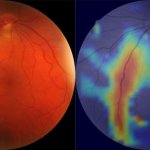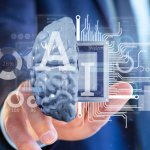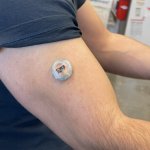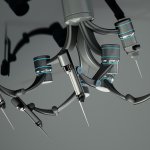
News • Ophthalmology
A healthy eye with AI analysis
Using deep learning, researchers created AI-driven computer models to analyze corneal and retinal images to help eye doctors in the future.

Using deep learning, researchers created AI-driven computer models to analyze corneal and retinal images to help eye doctors in the future.

A Stanford mechanical engineer creates multifunctional wireless robots to maximize health outcomes and minimize invasiveness of procedures.

New wearable technology creates new possibilities for assessing the neurological development of young children.

An artificial intelligence (AI) model combining four methods of machine learning (ML) to accurately detect thyroid cancer from routine ultrasound image data has been developed by US researchers.

Russia's war against Ukraine is also playing out in cyberspace. In the process, clinics in Germany could also be caught in the digital crossfire, IT experts warn.

A new AI platform can analyze genomic data extremely quickly, picking out key patterns to classify different types of colorectal tumors and improve the drug discovery process.

Colonoscopies performed with AI support may yield an increase in the overall rate of detection of adenoma, or cancerous and precancerous polyps, by 27% in average-risk patients, according to new data.

Over the past years, the world has been transforming into a post-Covid era. Taiwan has stepped up to the challenge on innovation and taking the advancement of digital healthcare to a whole new level.

Clear ethical standards and guidance are needed for AI in health settings to protect the relationship of trust between doctors and patients and to safeguard human rights, according to a new report.

This overview introduces connected and continuous glucose sensing technologies, smart insulin delivery systems and more innovations that help patients and doctors monitor and manage glucose levels and guide decision-making in diabetes care.

Wireless bioresorbable pacemaker bypasses need to extract non-biodegradable leads, eliminating additional risk to the patient.

Researchers at the Georgia Institute of Technology have developed a smart stent that can monitor hemodynamic parameters. The wireless and battery-free device can transmit the data to the outside of the body.

A wireless, bioelectronic pacifier could eliminate the need for invasive, twice-daily blood draws to monitor babies’ electrolytes in Newborn Intensive Care Units or NICUs.

Glucose is absorbed from the foods we eat and fuels every cell in our bodies. But could it also power tomorrow’s medical implants? According to a team of engineers, it might.

The path from evidence-based research to clinical implementation is straightforward in theory but taxing in practice: Research groups must be coordinated, relevant published material identified, classified, and prepared, to shape findings into a comprehensive SOP for clinical use. To facilitate this complex process, Wolters Kluwer developed a new suite of applications, called Ovid Synthesis.

Silk-based material under skin changes color in response to oxygen, and in the future might be adapted to track glucose and other blood components.

Engineers have developed a prototype of a wearable that can continuously monitor several health stats—glucose, alcohol, and lactate levels—simultaneously in real-time.

Scientists have created a design and fabrication tool for soft pneumatic actuators for integrated sensing, which can power personalized health care.

Researchers have developed advanced computer models, or “digital twins”, of diseases, with the goal of improving diagnosis and treatment.

Computational approaches are being applied on enormous amounts of data from sequencing technologies to develop tools to help clinicians manage cancer more effectively.

Scientists have taken the first step to creating the next generation of wearable health monitors, which could monitor the body’s health by detecting the gases released from a person’s skin.

Artificial intelligence (AI) could help guide the post-treatment surveillance of non-small cell lung cancer (NSCLC) patients and improve outcomes as a result, according to a new study.

During the first Chemnitz’ Robotic-Symposium, two experts reported on the current state and the future of robot-assisted surgery and highlighted why it is a good time to be involved in this field of technology.

The University Medical Centre (UMC) Utrecht, The Netherlands, collaborates with Fujitsu to realize their smart hospital initiative, using sensors, tags and IoT technology provided by the company.

Big data is transforming diagnosis and medical care, but the critical challenge remains over how to equally apply the benefits it delivers across real-world clinical settings, according to industry expert Prof Benoît Macq.